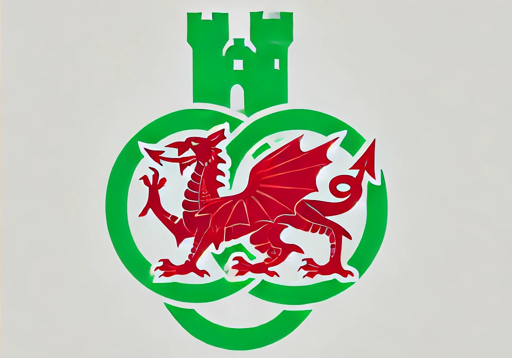Llywelyn the Great, also known as Llywelyn ap Iorwerth, was one of the most formidable and enduring rulers in Welsh history, governing as Prince of Gwynedd for nearly 45 years, from 1195 to 1240.
His rule during this turbulent rebellion era set the course for Welsh unity and sovereignty, as Llywelyn fought to maintain Welsh independence amidst encroaching Anglo-Norman power. His story is one of unmatched political insight, military prowess, and a deep-rooted commitment to Welsh identity and autonomy.
Early Life and Ascension of Llywelyn ap Iorwerth
Birth into the House of Aberffraw

Born around 1173 (73 years after Owain Gwynedd), Llywelyn ap Iorwerth (Llywelyn the Great) hailed from the distinguished House of Aberffraw, a family with longstanding claims to the rule of Gwynedd and a heritage fiercely devoted to Welsh independence.
Llywelyn was the grandson of Owain Gwynedd, one of the most respected and powerful Welsh rulers of the 12th century, who had managed to fend off the Anglo-Normans. His father, Iorwerth Drwyndwn, was Owain’s son, but Iorwerth’s untimely death left Llywelyn to navigate the turbulent world of Welsh nobility largely on his own, as a young boy thrust into a web of shifting alliances and rivalries.
Despite being orphaned early, Llywelyn’s lineage provided him with a legitimate claim to Gwynedd. This connection to the Aberffraw dynasty not only influenced his right to rule but also strengthened his resolve to restore his family’s prominence in Gwynedd.
The Struggle for Supremacy in Gwynedd
At the age of 21, in 1194, Llywelyn took a decisive step to assert his claim. He led a successful campaign against his uncle, Dafydd ab Owain, decisively defeating him in battle and securing control of Gwynedd. This was not a mere victory but a powerful assertion of Llywelyn’s ambition and determination to reclaim his family’s legacy.
His leadership and tactical skill were immediately apparent, earning him respect among Welsh nobles and laying the foundation for his consolidation of power across Gwynedd.
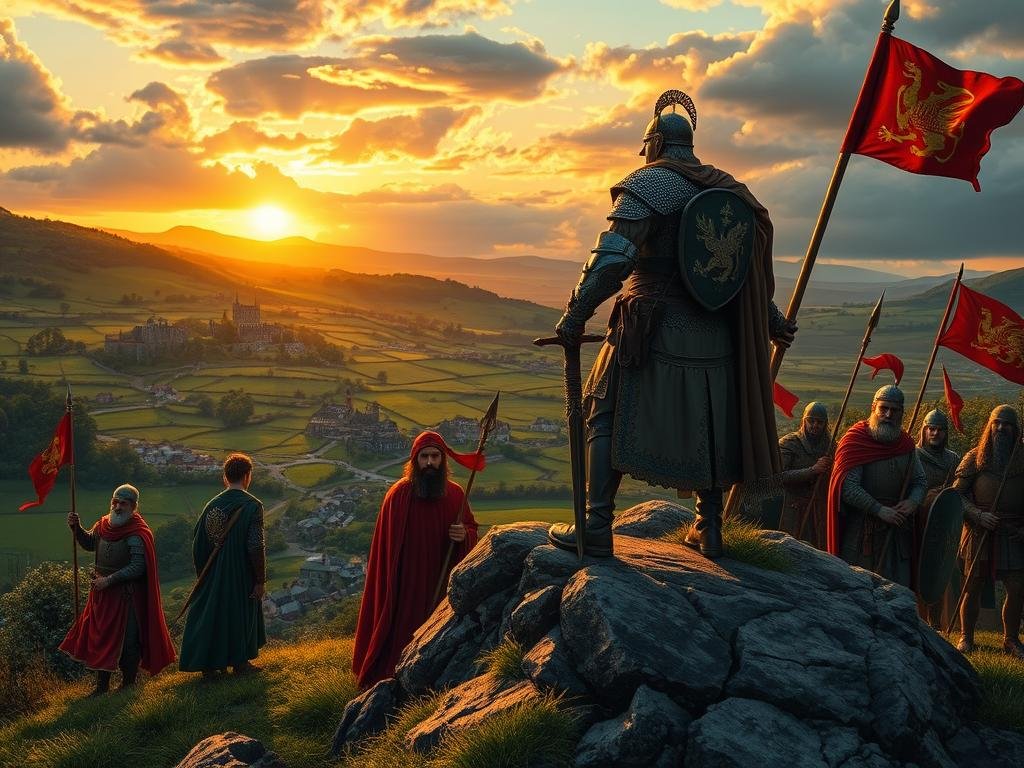
Family Relations and Political Dynamics
Llywelyn’s Relationship with His Cousin, Gruffudd
In contrast to some rulers, Llywelyn the Great did not have brothers who survived to contest his power. Instead, his cousin Gruffudd ap Cynan occasionally posed challenges to Llywelyn’s rule. Gruffudd, with his own claims, created a dynamic of intermittent conflict and alliance with Llywelyn.
This complex relationship came to a head in 1234, when the two reached an agreement allowing Gruffudd to rule a smaller territory within Gwynedd while Llywelyn retained primary control. This arrangement allowed Llywelyn to focus on external threats, notably the Anglo-Norman forces pressing into Welsh territory, while preserving stability within his family.
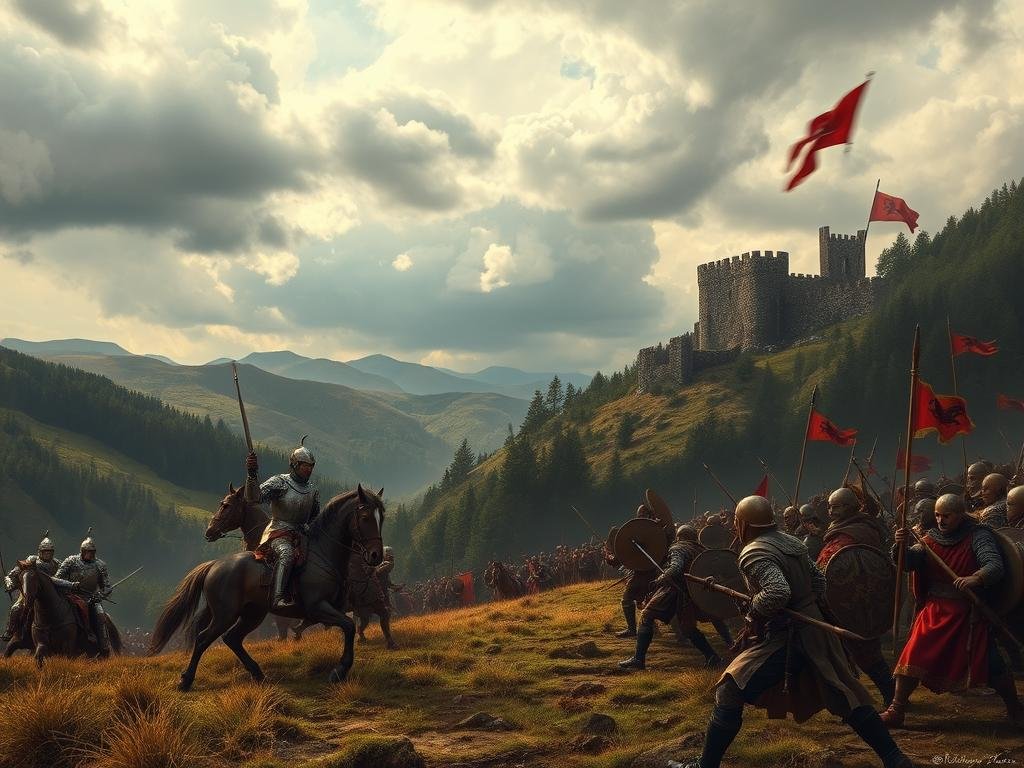
Llywelyn the Great: Consolidation of Power over Gwynedd
Llywelyn ap Iorwerth displayed a remarkable aptitude for diplomacy and warfare, shaping not only the fortunes of Gwynedd but setting a course for Welsh unity unseen in previous generations.”
— Professor R.R. Davies, author of “The Age of Conquest: Wales 1063–1415”
Reforms and Strengthening the Military
Llywelyn understood that a strong military was essential to defend Welsh sovereignty. He appointed Ednyfed Fychan, a trusted ally and skilled military commander, as his seneschal.
Together, they reformed Gwynedd’s military structure, imposing rigorous discipline and training standards. Llywelyn recognised that the key to Welsh resistance lay in agility, local knowledge, and tactical precision, rather than sheer numbers. Under his command, Gwynedd’s forces became highly organised, capable of defending the principality against larger, better-equipped Anglo-Norman armies.
Unification Efforts and Strategic Alliances
Llywelyn’s ambitions were not limited to military power; he aimed to bring together the fragmented Welsh territories. By forming alliances with neighbouring rulers, such as Rhys ap Gruffydd of Deheubarth, Llywelyn worked toward a united Welsh front.
This alliance was critical, as it not only strengthened his position in the south but also enabled mutual defence against English incursions. Llywelyn’s vision for Welsh unity went beyond his immediate interests, seeking to foster a sense of shared purpose and identity among the Welsh lords.
Through meticulous organisation and a keen understanding of his terrain, Llywelyn transformed the Welsh military into a formidable force, capable of withstanding and outmanoeuvring larger Anglo-Norman armies.”
— Dr. Sean Davies, historian and author of “Warriors and Warhorses: Military and Social Change in Medieval Welsh Society”
Confrontations Of Llywelyn the Great With Anglo-Norman Forces
Llywelyn’s determination to secure Welsh sovereignty was nothing short of revolutionary in its ambition. His campaigns against King John and later Henry III underscored his commitment to defend Welsh autonomy.”
— Professor Michael Prestwich, medieval historian and author of “Plantagenet England 1225-1360”
Battle of 1211 with King John
Llywelyn’s conflict with King John in 1211 stands as one of the most significant early tests of his resolve. Initially, John’s forces advanced into Welsh territory, forcing Llywelyn into a precarious position.
However, through adept use of guerrilla tactics, Llywelyn the Great managed to reclaim much of his territory and eventually forced John to negotiate. Although the resulting peace accord required Llywelyn to pay homage to John, it allowed him to retain significant control over his lands, a critical victory for Welsh autonomy during this period.
The First Conflict with Henry III in 1223
In 1223, Llywelyn faced his first direct confrontation with the young King Henry III. Determined to extend English control, Henry attempted to assert authority over contested territories in the Welsh Marches.
Llywelyn, refusing to cede any ground, mobilised his forces and used the Welsh terrain to his advantage, harrying English troops with swift raids and strategic skirmishes. This approach not only frustrated Henry’s efforts but also underscored Llywelyn’s determination to safeguard Welsh autonomy.
The Second Conflict with Henry III in 1231
After a period of uneasy peace, Llywelyn once again found himself in conflict with Henry III in 1231. This time, Llywelyn launched an offensive against English-held territories, using the rugged Welsh landscape to stage ambushes and outmanoeuvre Henry’s forces.
His victory in this campaign solidified his reputation as a tenacious defender of Welsh sovereignty and enabled further territorial expansion. By leveraging both the terrain and his military reforms, Llywelyn successfully protected Gwynedd from English domination.
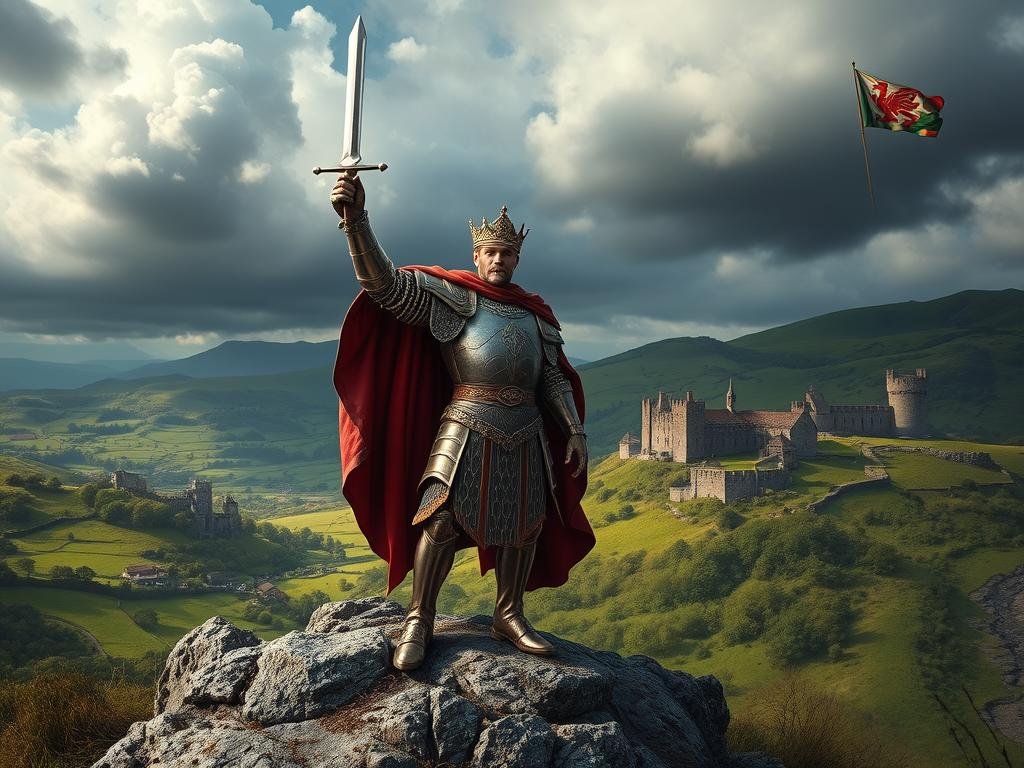
Llywelyn The Great’s Diplomatic Achievements and Alliances
Maintaining Welsh Independence
Throughout his reign, Llywelyn was dedicated to preserving Welsh independence from English rule. He strategically corresponded with other powers, notably King Philip II of France, to establish potential alliances against England.
Llywelyn’s diplomatic skills helped to secure a cautious respect from his enemies and solidify his standing among the Welsh people as a champion of their autonomy.
Expanding Gwynedd’s Borders and Political Influence
By 1220, Llywelyn had expanded Gwynedd’s territory to cover much of northern and parts of southern Wales, controlling strategic areas such as Iâl and Tegeingl.
These territorial gains not only reinforced Gwynedd’s dominance but also promoted a sense of stability and prosperity within his realm, consolidating his influence over the other Welsh territories.
The Treaty of Worcester (1218) and International Relations
In 1218, the Treaty of Worcester marked a significant diplomatic achievement. Historian John Edward Lloyd wrote, “This treaty acknowledged Llywelyn’s authority in Gwynedd and confirmed his influence over other Welsh territories, demonstrating England’s willingness to negotiate with a Welsh prince on equal terms.”
— John Edward Lloyd, “A History of Wales from the Earliest Times to the Edwardian Conquest”
Llywelyn’s diplomatic efforts bore fruit in 1218 with the Treaty of Worcester, which formally acknowledged his rule over Gwynedd. This treaty was a landmark achievement, underscoring Llywelyn’s political acumen and establishing Gwynedd as a recognised power.
His diplomatic reach extended to Scotland and even as far as France, demonstrating his ambition to secure a lasting place for Wales on the broader political stage.
Expanding Influence through Diplomacy with Scotland and France
Llywelyn’s strategic vision extended beyond Wales, as he sought alliances with other prominent powers of the time. His correspondence with King Philip II of France reflected his diplomatic skill, as Llywelyn aimed to create a counterbalance to English influence by aligning with France.
This relationship underscored Llywelyn’s awareness of the broader political dynamics within medieval Europe. Similarly, he maintained ties with the Scottish crown, recognising the mutual benefit of cooperation between Celtic nations against the expanding Anglo-Norman forces. Through these alliances, Llywelyn strengthened Welsh autonomy and positioned Gwynedd as a key player in medieval Britain.
Personal Life and Legacy
Llywelyn’s marriage to Joan, daughter of King John, is often viewed as a masterstroke of diplomacy. Scholar J. Beverley Smith notes, “Their marriage symbolised a temporary union between Wales and England, a testament to Llywelyn’s diplomatic prowess in navigating complex political relationships.”
— J. Beverley Smith, “Llywelyn ap Gruffudd: Prince of Wales”
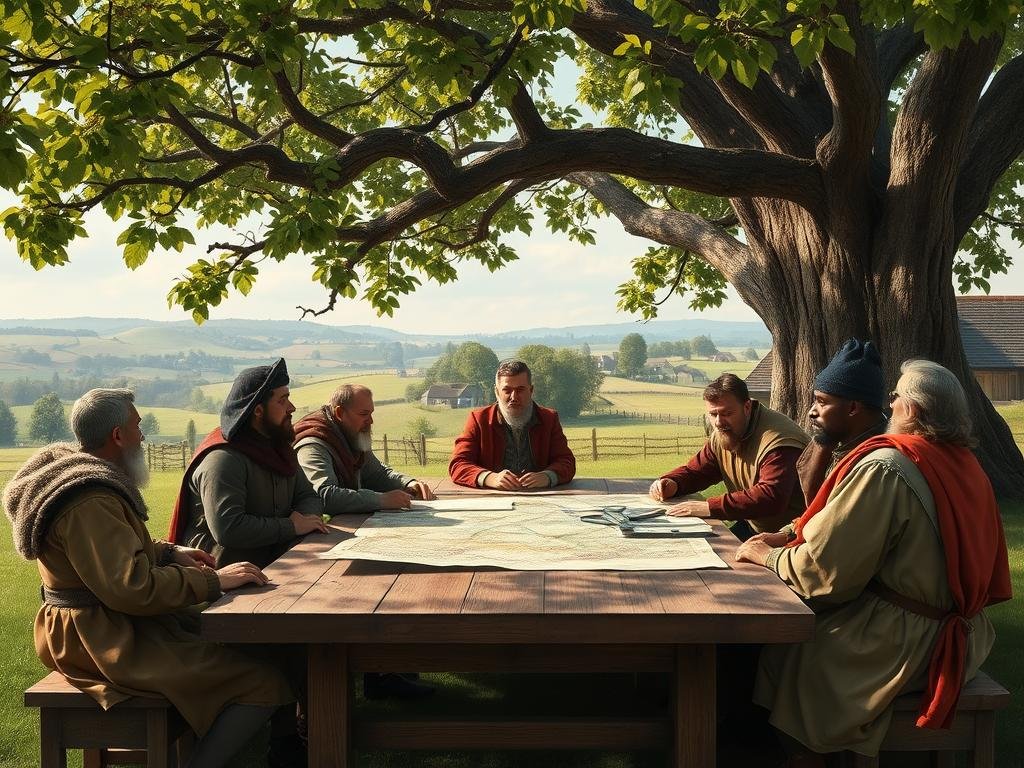
Llywelyn the Great: Marriage to Joan and Political Alliances
In 1205, Llywelyn strengthened his position through his marriage to Joan, the illegitimate daughter of King John of England. This marriage served as a symbol of his diplomatic skill, aligning him briefly with the English crown while maintaining his independence.
Llywelyn and Joan’s union was notable not only for its strategic implications but also for the genuine bond they shared. After Joan’s death in 1237, Llywelyn did not remarry, choosing instead to focus fully on his rule.
Succession and Familial Tensions
Llywelyn the Great’s family life was marked by the rivalry between his sons, Dafydd and Gruffudd. Dafydd, his son with Joan, was named his successor, creating tension with Gruffudd, his elder son from a previous relationship. This tension foreshadowed succession conflicts that ultimately weakened Gwynedd’s position after Llywelyn’s death in 1240.
Cultural Impact and Legacy of Llywelyn the Great
Influence on Welsh Literature and the Bardic Tradition
Llywelyn’s court attracted bards and poets, reinforcing a distinct Welsh identity and culture that flourished even under threat from external forces,” observed historian R.R. Davies. “His patronage of Welsh poetry and tradition ensured that his legacy would resonate long after his death.”
— R.R. Davies, “Conquest, Coexistence, and Change: Wales 1063–1415”
Llywelyn the Great’s achievements resonated throughout Welsh culture. He was celebrated by bards like Cynddelw Brydydd Mawr, who composed poetry in his honour, cementing his legacy in the Welsh bardic tradition. His court became a centre for Welsh culture, fostering the arts and reinforcing a distinct national identity that would inspire generations.
Enduring Symbol of Welsh Identity
Long after his death, Llywelyn the Great remained a symbol of Welsh pride and resilience. His legacy influenced later Welsh leaders, including his grandson, Llywelyn ap Gruffudd, who continued the struggle for independence. Llywelyn’s life and achievements continue to inspire those who cherish Welsh heritage and the pursuit of autonomy.
Key Takeaways
- A Formidable Leader: Llywelyn The Great’s 45-year reign established him as a cornerstone of Welsh history.
- Unifying Force: He strengthened Gwynedd and pursued Welsh unity through tactical alliances and military reform.
- Masterful Diplomat: Llywelyn navigated complex Anglo-Welsh relations, culminating in the Treaty of Worcester.
- Cultural Icon: His legacy remains a beacon
Conclusion
Llywelyn the Great’s life was a remarkable journey of resilience, ambition, and unwavering dedication to Welsh sovereignty. His leadership transformed Gwynedd into a powerful principality, defending its lands and people from Anglo-Norman incursions while inspiring a united Welsh identity.
Through strategic alliances, military ingenuity, and cultural patronage, Llywelyn not only safeguarded Wales during his time but left a legacy that resonates through history. His story remains a testament to the strength of Welsh spirit, reminding us that the pursuit of freedom and unity can carve an enduring legacy, one that shapes generations and defines a nation’s soul.
Matt
